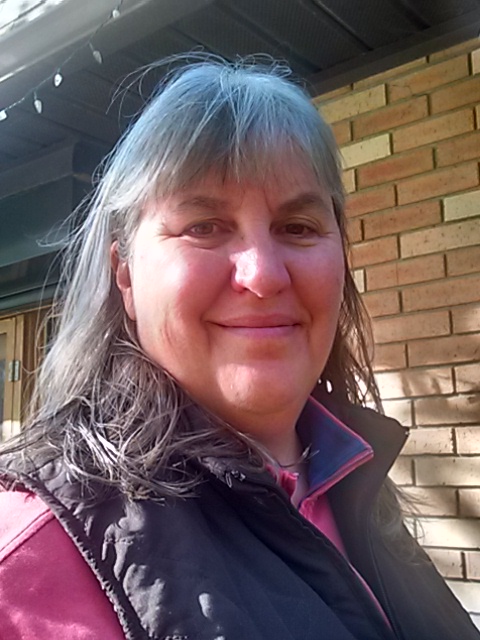As I read a recent headline in The Atlantic “The US is on the Path to Destruction”, I realized once again that climate change is truly an existential threat.
“Climate change is killing Americans and destroying the country’s physical infrastructure. The federal government spends roughly $700 billion a year on the military. It spends perhaps $15 billion a year trying to understand and stop climate change. I thought about those numbers a lot last week, as I tried to stop my toddler from playing in ash, tried to calm down my dogs as they paced and panted in mid-morning dusk light, tried to figure out whether my air purifier was actually protecting my lungs, tried to understand why the sky was pumpkin-colored, and tried not to think about the carcinogen risk of breathing in wildfire smoke, week after week. The government has committed to defending us and our allies against foreign enemies. Yet when it comes to the single biggest existential threat we collectively face—the one that threatens to make much of the planet uninhabitable, starve millions, and incite violent conflicts around the world—it has chosen to do near-nothing. Worse than that, the federal government continues to subsidize and promote fossil fuels, and with them the destruction of our planetary home. Climate hell is here. We cannot stand it. And we cannot afford it either.”
Most people tend to associate climate change with weather disasters but it also impacts infectious diseases, thus even the pandemic is related to climate change. Droughts affect not only wildfires; they also impact food and water supply. If we don’t do something to address human induced climate change (fossil fuel usage and land management) we will face worsening feed back loops which will (if haven’t already) make it impossible to slow the increased rate of climate change. When I recently read in the news that China announced it would eliminate fossil fuel usage by 2060 and California will sell only electric new cars by 2035 I wondered, “Do we still have 15 or 40 years to do what we should have done 30 years ago”?
Earth’s climate has already changed and sadly the ramifications have become a reality of “hell” for many. During the next decade we are going to experience a faster pace, more severe disruptions and worsening impacts. We must address climate change now and it can’t matter which political party is in power or which form of government a nation chooses. Governments around the world will be severely constrained by increasing rates and severity of climate related disasters. There will be far too many people who must migrate, communities who desperately need food, water, and resources just to live let alone to rebuild. Weather disasters will continue to strike everywhere and we are all in danger.
It may seem to some that the cost of recovery is small compared to our country’s GDP, but “economic growth is not a proxy for well-being, and natural disasters like hurricanes destroy lives and wealth even if they don’t make a huge dent in the nation’s economic output.” Money spent on stocking up for a storm or property repairs afterwards may boost gross domestic product in the short-term, but it comes at the expense of discretionary spending households would have chosen instead. And there are the long term consequences of living in uncertainty, feelings of panic when the alerts or warnings go out, worrying that you will have no place to go when danger approaches, or have the finances to once again recover. And there is the stress of having to deal with insurance claims or government programs that are supposed to make you whole again but rarely do. The true cost of living during this time of weather disasters and climate change cannot be measured in dollars alone. Disasters not only have physical consequences they also impact mental health.
Wall Street investors may not see a problem from weather disasters; as long as the US economy keeps chugging along why should we change anything? This helps to explain why US politicians and corporations aren’t in a hurry to address climate change, to work harder to move people and assets away from high risk areas, and why we continue to rebuild in the same areas. The damage to our social fabric is less obvious but it’s there if you look carefully. The impact of hurricanes, wildfires, floods, tornadoes, and heat waves are obviously much more devastating for people who have no savings, who may be undocumented, or who are already living on the edge of poverty. They are also devastating for those who have the financial ability to move temporarily and to pay for insurance and repairs. The pandemic, even more than than the Great Recession, has pushed many Americans over into financial collapse.
Government bailouts add many trillion dollars to the US debt, a bill that will paid by our grandchildren and even great grandchildren. How much debt can we ever hope to repay and at what cost of ignoring other needs of society? Racial discrimination is at a boiling point in our country with protests and riots in major cities. Black people are being killed during routine police stops and police officers are being shot sitting in their car. We are living in dangerous times and with the election barely more than a month away one can only hope that afterwards some semblance of leadership will replace the vacuum that currently exists today.
We must understand that after the election our problems will not go away. If Biden wins his administration will face deep and intractable issues that have been allowed to become open festering wounds. There isn’t a single problem; there are dozens and each of them impact and intertwine with others. Unless the Democrats overturn the Republican majority in the Senate the Biden administration will face obstructionism in Congress. And worse, if Trump wins we can expect more of the same divisive leadership, more attacks on long held American institutions. President Trump blames Democratic leaders for the pandemic and civil unrest. He blames forest mismanagement for wildfires (suggesting we should rake up the dead leaves) and questions science rather than his own ignorance.
The current problem with our political discourse is the rise of extreme partisanship, where ideologies have become ascendant and we have stopped listening to each other. Too many people get their news from social media platforms that have become echo chambers where people are fed by design only what confirms their ideology. This places us in a position where we have become susceptible to propaganda that is by design dividing us.
The only way to get past our differences is to agree to disagree, and before we can do that we must once again talk and listen to each other. We must create more space for civil debate, an essential to a healthy democracy. Everyone should question declarative statements because rarely do absolutes exist. All of our ideas need to be viewed as part of a larger picture. America is a melting pot of many cultures, ideologies, and lifestyles. No one solution, no one ideology can be applied in every situation to solve every problem we face.
This is the reality. Climate change is causing weather disasters to become more frequent and damaging. People who are already income insecure are falling into poverty and despair. The transition to a renewable energy economy is taking far too long and fossil energy remains too large a source of pollution in our country. Income inequality threatens our democracy from within. Democracy is the only way our voice can be heard, the only way our votes for change matter. When oligarchs and autocrats control government, they also control our ability to address our problems. As long as our problems don’t rise to a sufficient amount to challenge the global economy and the financial interests of the wealthy, our problems don’t matter.
We have too many problems that need to be addressed at the same time, too many decisions to be made that require we come together and stop defending political party affiliation. A community that suffers flooding, hurricanes, power outages, wildfires, electricity black outs has more immediate issues with which to deal. In an emergency our personal political beliefs are not important. We can’t control weather disasters, all we can do is prepare for them. We face a future where they will become more frequent and severe. We face a future of epidemics and pandemics, of resource shortages and international conflict. We’ve ignored or denied the ramifications of climate change for too long and done too little to address the risks. If we don’t build resiliency in our families and communities, in our nations…the collapse of our civilization is inevitable.
When the hurricane season approaches coastal US states people prepare. They assemble supplies needed in the event of a hurricane. A national stockpile of supplies may seem redundant to some but it is going to become increasingly necessary to prepare for emergencies. When a weather disaster strikes we need to have supplies and a place of safety to ride out the storm. We need our community leaders to think about long term preparation and our ability to recover from whatever happens. We need to retreat and physically move entire communities to higher ground. Most importantly, we need to help families reduce debt and increase savings in order to deal with economic disruptions caused by disasters and job loss.
My hope is that come November 4th we remember we are ALL in this together, we live in the ‘United’ States of America. We are a democracy first; liberals or conservatives, Democrats or Republicans second. We need to prepare for the challenges that lay ahead. “Climate hell is here and we cannot stand it.” Neither can we afford to ignore it.
Teaser photo credit: Weymouth Bay with Approaching Storm. John Constable. Public Domain.






